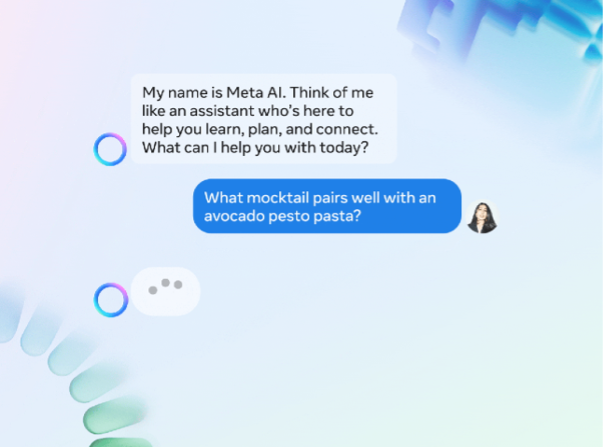Here’s what you will find in this fortnight’s AI updates:
- Hollywood writers end strike, secure new contracts amid AI concerns
- Spotify reverses policy on AI-generated music, embraces podcast translation using AI
- Getty Images launches a new generative AI feature, calls it ‘Safe’ for commercial use
- Meta launches conversational chatbot, Meta AI, which uses public Facebook and Instagram posts as training data
- Visa announces $100 million investment in generative AI technologies for commerce and payments
- NSA launches AI Security Center for national security
HOLLYWOOD WRITERS END STRIKE, SECURE NEW CONTRACT AMID AI CONCERNS

On 27 September, 2023, after a 148-day strike, Writers Guild of America (WGA) members secured a new contract with Association of Motion Pictures and Television Producers (AMPTP), securing better compensation, streaming residuals and compromises on AI overuse in the creative process. The tentative Minimum Basic Agreement (MBA) provides that AI cannot be used to write or rewrite material, and AI-generated material will not be considered source material. The MBA also provides that the writers can choose to use AI tools, subject to the company’s consent and its policies. However, the company cannot compel a writer to use AI for writing services. Lastly, the WGA, under the MBA prohibits the exploitation of writer’s material to train AI models.
SPOTIFY REVERSES POLICY ON AI-GENERATED MUSIC, EMBRACES PODCAST TRANSLATION USING AI
On 25 September, 2023, Spotify, shifted its stance on AI-generated music by not banning such music completely, but taking a nuanced approach and allowing valid uses of AI in music creation. This comes after the controversy surrounding the AI-generated song “Heart On My Sleeve” was banned because it mimicked artists Drake and The Weeknd.
Spotify also plans to use AI to translate podcasts into different languages while retaining the speaker’s voice.
GETTY IMAGES LAUNCHES A NEW GENERATIVE AI FEATURE, CALLS IT ‘SAFE’ FOR COMMERCIAL USE
On 25 September, 2023, Getty Images Launched a ‘commercially safe’ generative AI tool, trained on its library of licensed images. The tool uses NVIDIA’s Picasso technology. Users can generate images without concerns about copyright issues, and can also be custom-trained to certain brands. It has also restricted some prompts to avoid misuse by generating deep-fakes of major personalities.
Earlier this year, in February, Getty images initiated a lawsuit against Stable Diffusion for scraping images from its site to train Stable Diffusion Image Generator.
META LAUNCHES CONVERSATIONAL CHATBOT, META AI, WHICH USES PUBLIC FACEBOOK AND INSTAGRAM POSTS AS TRAINING DATA

On 27 September, 2023, Meta has launched a conversational chatbot called Meta AI, which will be integrated in WhatsApp, Messenger and Instagram, and the upcoming Meta-powered Ray-Ban smart glasses, which will act as an assistant for users and will have ‘personality’. The chatbot is based on an open-source large language model called Llama 2, which was made partnership with Microsoft.
Nick Clegg, Meta’s president of global affairs said that posts with both text and photos are being fed to Meta AI, but does not include private posts and private messages. Meta also claims to have taken measures to exclude personal information from the training data.
Nick Clegg is expecting people to contest this in concern with Copyright and Fair Use.
VISA ANNOUNCES $100 MILLION INVESTMENT IN GENERATIVE AI TECHNOLOGIES FOR COMMERCE AND PAYMENTS
Visa is optimistic on the use of AI technology in Commerce and Payments. On 3 October, 2023, they have announced that they plan to invest $100 million in companies working on generative AI and applications that have potential to impact commerce and payments and fintech. The investments will be managed by Visa Ventures, the corporate investment arm of the company.
NSA LAUNCHES AI SECURITY CENTER FOR NATIONAL SECURITY
On 28 September, 2023, National Security Agency Director Gen. Nakasone announced the creation of the AI Security Center to oversee AI development in the U.S. national security.
The new security center establishes frameworks for safe AI adoption in the National security enterprises, and promotes responsible AI use. It will also be responsible for protection against external AI threats. It will collaborate with various stakeholders, including industry, labs, academia, and foreign partners.
Authors: Keshav Singh Rathore, Shruti Gupta















